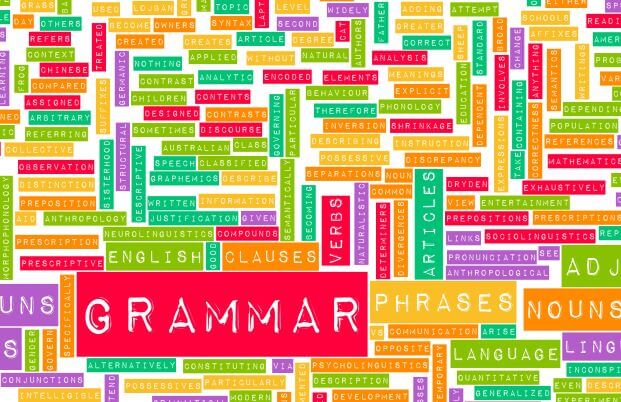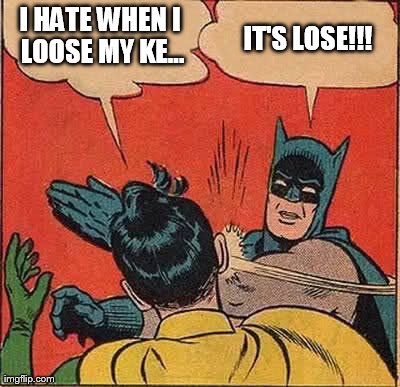
There it was. A challenge I couldn’t ignore.
“Take our grammar quiz,” it said. “It’s so difficult that most people can’t even get half the answers right.”
Clearly, as a writer, I was obligated to take the click bait.
First, as most online quizzes are, it was fairly easy. In fact, I answered all the questions correctly. I get it. That’s the way it works. I’m supposed to walk away thinking I’m a genius and, better yet, post my score and the link for all my friends and colleagues.
Still, it got me thinking. What if it’s true? What if people really can’t answer at least half of these basic questions right? Are we heading for a world with no grammar standards? Are we already there? And, if we are, is it a bad thing?
Where grammar rules fit in a text-first, read-later world
As I ponder the state of grammar rules in today’s text-me-first and
But the thing is, I believe you have to know grammar rules before you break them. When you don’t, it’s messy or a little embarrassing at best. At worst, it takes attention away from the message you are trying to convey.
And, then there are the rules that should always be followed. No matter what. But, before we go there…
Full disclosure: Grammar drills and proofreading thrills
I know my grammar basics. My eighth grade English teacher made sure of it. (Thanks, Mrs. Banks.) It felt like we spent the whole year on grammar drills with 20-pages of workbook homework every night. Looking back, I’m sure it wasn’t that intense. My memories are likely colored by a mix of teenage angst and a little PTSD from diagramming sentences on the whiteboard with the whole class watching.
My grammar foundation served me well as I moved on to journalism school and learned the joys of “AP Style.” I loved learning how to structure my writing – the impact of adjusting styles, the power of simplification, and the euphoria of finding just the right word. Plus, I discovered a deep affection for proofreading. I’m serious. The old-school, hand-written delete loop was my favorite, partly because you were striking out unnecessary words and partly because the action itself was so satisfying.
Anyway, back to the click-bait quiz. It included some of my grammatical pet peeves. Those simple oversights that make me crazy when they make it out into the world. With a nod to Mrs. Banks, I’m sharing a few here as my contribution to preserving good grammar rules in the internet age.
1. They’re, Their, There.
Let’s all agree, of course, they’re not interchangeable. Same with “your” and “you’re.” Ditto for “who’s” and “whose.” Unfortunately, these words seem to be used incorrectly more and more. People are typing quickly, or AI is anticipating what they want to write before they can even type, and spell check doesn’t always catch on. It happens.
It’s worth taking three extra seconds to make sure you’re using the right “their” there. And, don’t even get me started on, “Please congratulate Sam,

Source: http://www.viralnova.com/grammar-fails/
2. The effect of misusing affect.
“Affect” and “effect” sound alike. But again, that doesn’t make them interchangeable. Sometimes I think a lot of people just flip a coin to choose which one to use. After all, there’s a 50-50 shot of getting it right. Stop the madness.
The rule here is fairly straightforward. Use “effect” when it’s a noun. The effect of bad grammar is widespread. Use “affect” when it’s a verb. Bad grammar affects us all. (Caveat: “Affect” is sometimes a noun when you’re referring to a facial expression, but how often does that come up?)
Here’s a helpful tip – direct from Mrs. Banks. Affect begins with “A”. “A” is for action, which makes “affect” a verb.
3. I lose it when people say “loose it.”
Honestly, I get disproportionately annoyed when people post about wanting to loose weight or how their latest venture is loosing money. I guess there’s just something about that extra “o” that makes me a little crazy.
Keep it simple. If you’re talking about a loss, always lose an “o.”

4. Then, there’s the battle between than and then.
Nobody wins when you use “than” when you mean “then.” Basically, “than” is for comparisons. Mrs. Banks was a much better linguist than I am. “Then” is for an expression of time. First, I’ll check my grammar, then I’ll post this blog.
Here’s a tip I like: Use “then” when you’re writing about “when.”
5. Complementary compliments.
Honestly, I think the complementary errors are out of control. Complimentary means free. It also means you’re saying nice things about people. Complementary means “combining things in a way that enhances or emphasizes the qualities of each other.”
Mixing these two up can have actual bottom-line implications. If you say a glass of wine is complementary, you mean it pairs well with a meal. If you say it’s complimentary, you’re saying it’s free. (Or you’re saying the wine is saying nice things about the meal, which we all know is not what you meant. So, most people will stick with interpreting the meaning as a free glass of wine.)
6. All hail, punctuation.
A lot of times punctuation is up for interpretation. And, I’m on board with people picking sides in the Oxford comma debate or choosing to be an exclamation point person.
That said, some punctuation rules are non-negotiable. You’re not making a choice, you’re wrong.
The biggest punctuation misstep? In my opinion, it’s apostrophe abuse. If stats were recorded, you can bet apostrophes are misplaced more than any other punctuation mark. My main pet peeve is when people use apostrophes to indicate something is plural. Look around, the signs are everywhere.

The $5 million comma
Before you dismiss punctuation as optional, behold the power of one little comma.
A missing comma in Maine’s overtime pay law cost a dairy company $5 million. Truckers successfully argued that because there was no comma before “or distribution” in the following definition, their work was not exempted from overtime pay.
The canning, processing, preserving, freezing, drying, marketing, storing, packing for shipment or distribution of: (1) Agricultural produce; (2) Meat and fish products; and (3) Perishable foods.
In other words, because the truck drivers were only distributing, not packing, the courts ruled the company had to pay overtime.
I’ll stop. Commas really deserve their own post.
Don’t let grammar rules get you down. I recommend keeping this grammar cheat sheet handy as a reference. Then, turn to Write Hand Ann for proofreading, editing, or writing from scratch.
